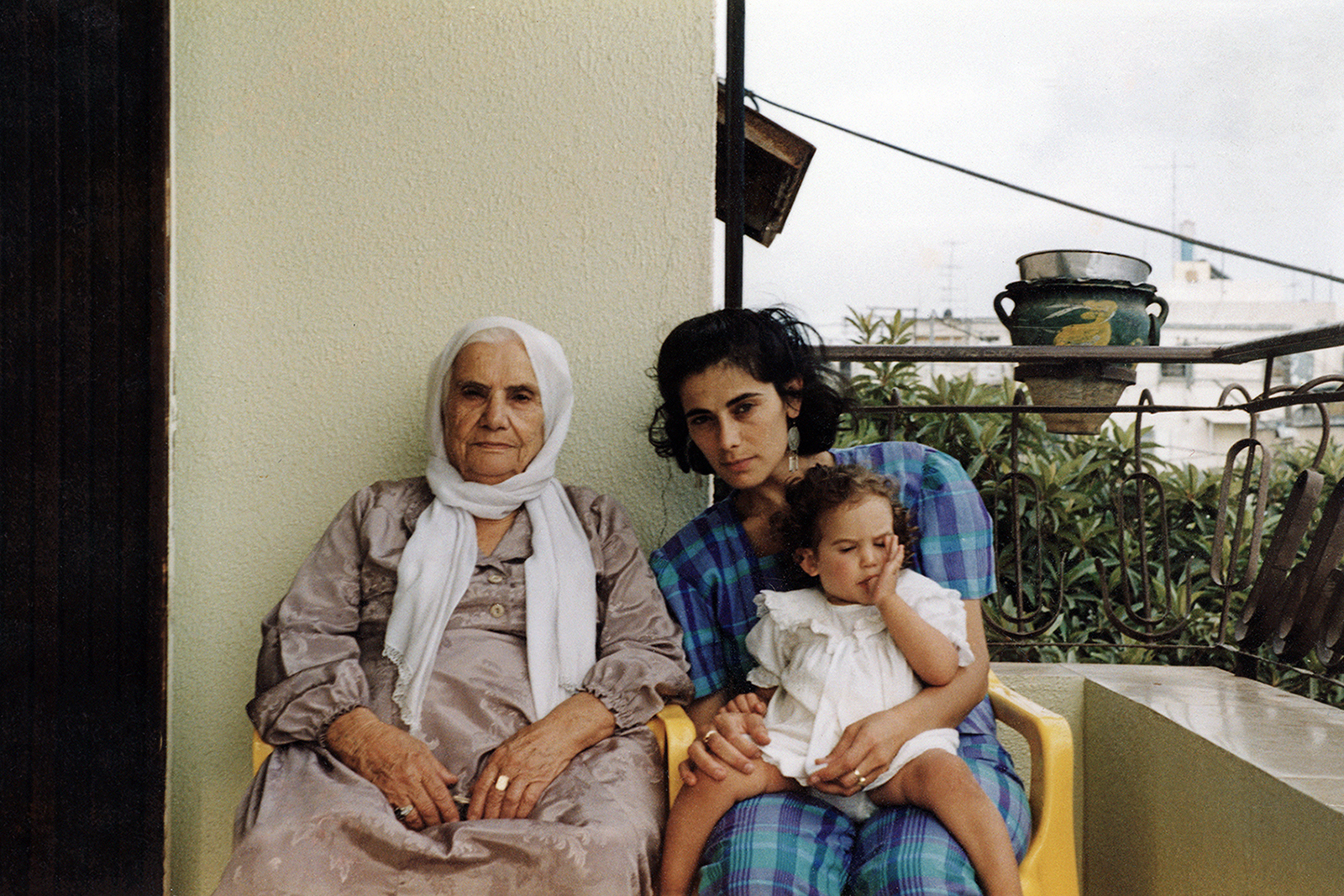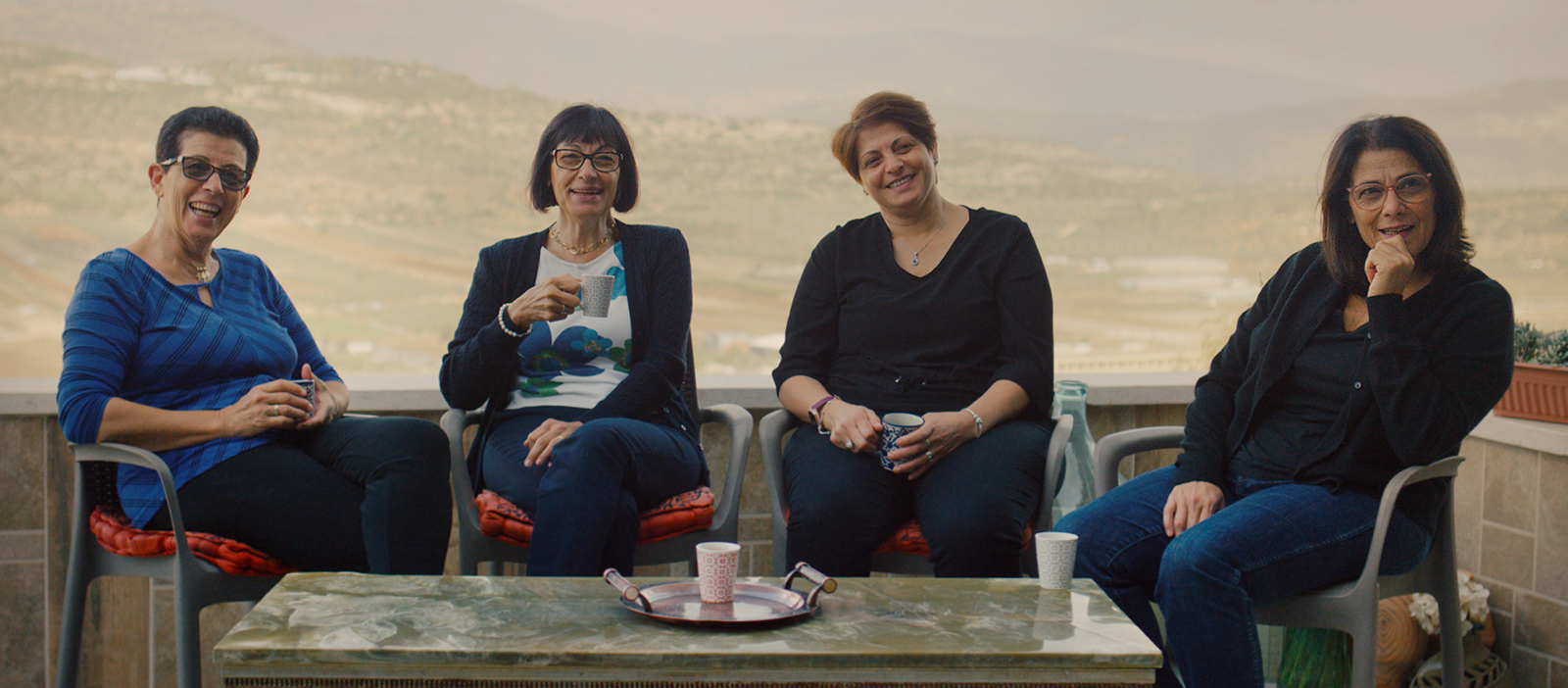Bye Bye Tiberias captures the scars held by those of us who have fled war
Lina Soualem’s documentary following her journey with her mother, actor Hiam Abbass, to their Palestinian home is a testimony to the spirit of all displaced people
–

Revisiting Bye Bye Tiberias has been immensely difficult. In the months between the 2023 Venice Film Festival premiere of Lina Soualem’s documentary about her Palestinian roots, and its imminent UK release this month, on 28 June, the region has been transformed by unspeakable brutality.
The film sees Soualem journey with her mother, Hiam Abbass, to her Palestinian village of Deir Hanna, now officially deemed to be part of Israel. Abbass has lived mainly in Paris since she left Deir Hanna, and has found great success as an actor, starring and consulting in Steven Spielberg and Denis Villeneuve films, but is best known for her roles in television playing Logan Roy’s formidable wife Marcia in Succession and the titular character’s mother in Ramy.
Bye Bye Tiberias explores Abbass’s complex identity by tracing her first homecoming since the 1980s. After the Nakba in 1948, many of her relatives were expelled to nearby Arab states while Abbass’s grandmother, her children and grandchildren were able to secure Israeli citizenship which afforded them rights, but left them unable to visit family who were forced into exile. The film has terrible prescience with the unfolding horrors in Gaza. The Nakba led to the deaths of an estimated 15,000 people while the ongoing onslaught’s death toll is now more than double that number. Around 750,000 Palestinians were forced out of their homes in 1948, and in 2024 that figure is just under two million.
Soualem’s documentary gives voice to an intergenerational trauma that no moves to Paris or success on stage and screen can break free from. I am no movie star, but have found myself living a comfortable existence in London, having last April fled the war in Sudan that began on the final days of 2023’s Ramadan. Thanks to my dual citizenship, I was able to start again in Britain, but I find myself constantly overwhelmed by the scars of what we went through to get to safety, the survivor’s guilt when thinking of those left behind, and the thought that I may never be able to return home.
Watching Bye Bye Tiberias during the onslaught and displacement of so many young souls in Palestine and Sudan, it feels like a portrait of future generations born of those who escaped these conflicts and grow up with parents in exile. I’m contemplating the difficult conversations I will one day have to have with my own young children about what has happened to us.

The “lucky” ones who escape with their lives and build futures face living in a world that sees them untethered from their homeland. That profound grief and resentment is cruelly inherited by their children. My son frequently asks about when we will be able to go back home. He told me that was the wish he made when he recently blew out the candles on his birthday cake.
I also look at my parents, who are here with me in the UK, and cannot help thinking that I would sacrifice everything if it just meant they could walk through the doors of their house in Khartoum and take in the incredible view of the Blue Nile that curves along the edge of their garden. As we see in Soualem’s documentary, children have an innate desire to understand their parents and to try to heal their wounds. The director’s approach may be unorthodox — asking her mother to relive painful memories on camera — but it’s effective.
In one scene Abbass is asked to perform the moment when she first told her father of her plans to marry a European and move to France to become an actor. We see, even decades later, how these open wounds still remain. She begs her director daughter to stop making her revisit such painful memories with a tearful, “Lina, what do you want?”
Both Soualem and her mother leave the film seeming to better understand the impact of these traumatic events. They have found a sense of home, even if it’s a complicated and painful one. When Abbass is able to travel to a Palestinian refugee camp in Syria to finally meet an aunt, it’s a profound moment of healing. With her Israeli citizenship, the actor has been afforded a freedom of movement that eluded her extended family, but the two nearly collide in their rush to embrace one another and physically reassemble their family.
Bye Bye Tiberias is a deeply personal piece — as is inevitable in a film in which a daughter directs her mother. There is care and affection in Abbass each time she looks down her daughter’s lens to answer her questions, sincerely trying to explain herself even when it’s agonising to recall memories of their displacement.
Though it is a dark subject, it is ultimately a hopeful one. It’s easy to look at what is happening in the news and despair, to not believe in a future beyond the present depravity occurring across the globe. But Bye Bye Tiberias proves to be a powerful testimony to the human spirit of the Palestinians, Sudanese and all displaced people who, despite everything, continue on and fight to one day go home.
Bye Bye Tiberias is screening in UK cinemas from 28 June.
Topics
Get the Hyphen weekly
Subscribe to Hyphen’s weekly round-up for insightful reportage, commentary and the latest arts and lifestyle coverage, from across the UK and Europe
This form may not be visible due to adblockers, or JavaScript not being enabled.